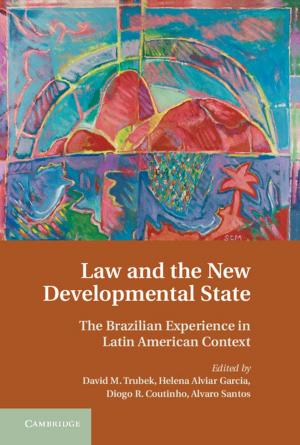Living with the Enemy
German Occupation, Collaboration and Justice in the Western Pyrenees, 1940–1948
Nonfiction, History, European General, Modern, 20th Century| Author: | Sandra Ott | ISBN: | 9781316832554 |
| Publisher: | Cambridge University Press | Publication: | June 26, 2017 |
| Imprint: | Cambridge University Press | Language: | English |
| Author: | Sandra Ott |
| ISBN: | 9781316832554 |
| Publisher: | Cambridge University Press |
| Publication: | June 26, 2017 |
| Imprint: | Cambridge University Press |
| Language: | English |
In post-liberation France, the French courts judged the cases of more than one hundred thousand people accused of aiding and abetting the enemy during the Second World War. In this fascinating book, Sandra Ott uncovers the hidden history of collaboration in the Pyrenean borderlands of the Basques and the Béarnais in southwestern France through nine stories of human folly, uncertainty, ambiguity, ambivalence, desire, vengeance, duplicity, greed, self-interest, opportunism and betrayal. Covering both the occupation and liberation periods, she reveals how the book's characters became involved with the occupiers for a variety of reasons, ranging from a desire to settle scores and to gain access to power, money and material rewards, to love, friendship, fear and desperation. These wartime lives and subsequent postwar reckonings provide us with a new lens through which to understand human behavior under the difficult conditions of occupation, and the subsequent search for retribution and justice.
In post-liberation France, the French courts judged the cases of more than one hundred thousand people accused of aiding and abetting the enemy during the Second World War. In this fascinating book, Sandra Ott uncovers the hidden history of collaboration in the Pyrenean borderlands of the Basques and the Béarnais in southwestern France through nine stories of human folly, uncertainty, ambiguity, ambivalence, desire, vengeance, duplicity, greed, self-interest, opportunism and betrayal. Covering both the occupation and liberation periods, she reveals how the book's characters became involved with the occupiers for a variety of reasons, ranging from a desire to settle scores and to gain access to power, money and material rewards, to love, friendship, fear and desperation. These wartime lives and subsequent postwar reckonings provide us with a new lens through which to understand human behavior under the difficult conditions of occupation, and the subsequent search for retribution and justice.















